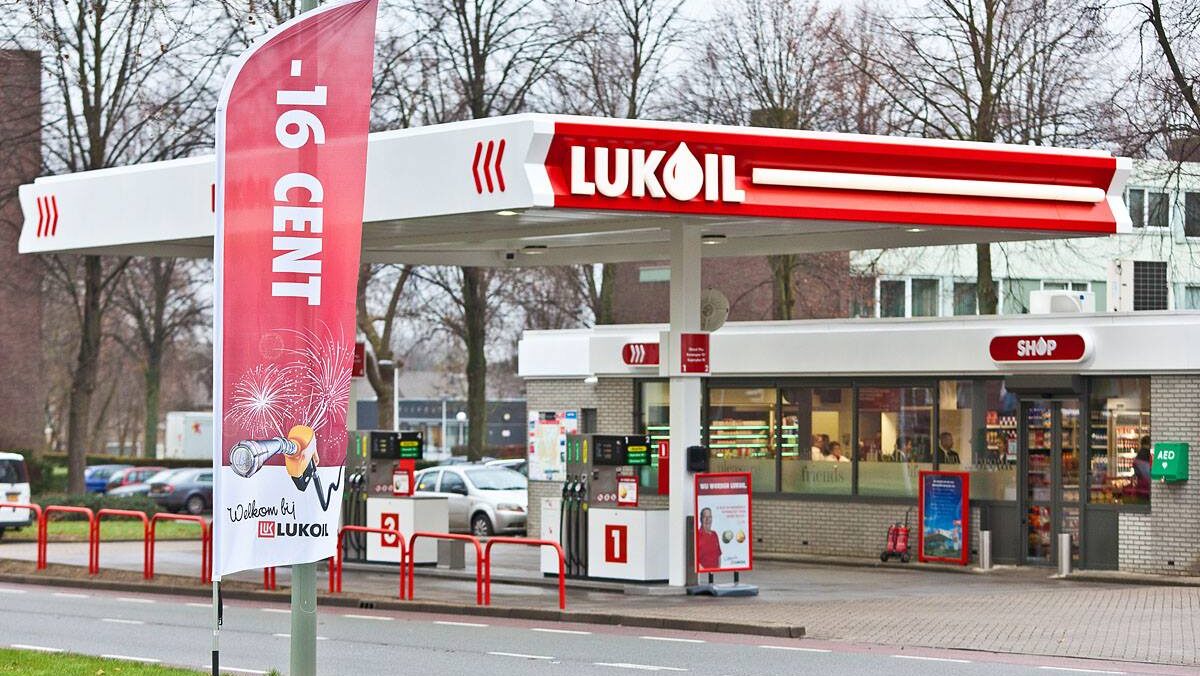No products in the cart.

Lukoil station in Belgium. The company operates 260 gas stations in the Benelux countries alone.
Photo: Lukoil on Facebook, 5 July 2017
Oil deliveries to the EU through Ukraine by the Russian company Lukoil have been halted following Kyiv’s decision to place the company on its sanctions list last week, leading to harsh criticism from neighboring Slovakia and Hungary, which are already dealing with an uptick in gasoline prices.
Robert Fico, Slovakia’s sovereigntist prime minister who survived an assassination attempt in May, spoke to his Ukrainian counterpart Denys Shmyhal on Saturday, July 20th, telling him that Bratislava will not be “a hostage of Ukrainian-Russian relations.” According to the PM’s office, Fico tried to explain to Shmyhal that
The inclusion of Lukoil on the sanctions list is just another example of senseless sanctions that do not hurt the Russian Federation but mainly some [EU] member state, which is unacceptable.
With Lukoil deliveries stopped, the Slovak Slovnaft refinery is missing 40% of the oil it would usually process, the Slovak government said, warning Kyiv that this would not only affect the domestic market but may also jeopardize Slovakia’s ability to continue its diesel deliveries to Ukraine, which have been pledged to help the war effort.
Hungary, another major consumer of Lukoil, which provides around 35% of the country’s entire oil supply, reacted similarly. Kyiv’s decision “is both incomprehensible and unacceptable,” Hungarian Foreign Minister Péter Szijjártó said on Friday. He added that even though temporary solutions have been implemented to stabilize Hungary’s oil supply, these measures will not suffice in the medium term and could lead to a full-blown “fuel crisis” in the near future.
Szijjártó revealed that he also contacted the Ukrainian authorities and asked for an immediate reversal of the decision that poses a serious threat to the long-term energy security of Slovakia and Hungary. Initially, Kyiv showed “willingness to rectify the situation,” the FM said, but its “efforts have stalled along the line.”
Furthermore, the problem has implications for the entire EU through Ukraine’s ongoing membership process. Budapest is coordinating its steps with Bratislava to raise the issue during the EU’s Foreign Affairs Council later on Monday in Brussels. As Szijjártó stressed,
It is strange that a country aspiring to join the European Union is seriously endangering the energy supply of two EU member states.
Moreover, Hungary—just like Slovakia—has been helping Ukraine in various ways to maintain its energy supply during the war despite its own “difficult circumstances,” Szijjártó added. The same point was raised by Balázs Orbán, the political director of the Hungarian prime minister, who said that Hungary began transporting oil to Ukraine ever since the war began. “After all this, what kind of move is this from a neighboring country?” Orbán asked on X.
— Balázs Orbán (@BalazsOrban_HU) July 21, 2024
#Ukraine halted the transition of oil to #Hungary and #Slovakia, posing a serious threat to the long-term security of oil supplies to both countries. It’s concerning that a nation aspiring to join the #EU is jeopardizing the energy supply of two EU member states, especially… pic.twitter.com/gXHc7pzSW2
Lukoil is the second-largest company in Russia (after Gazprom) and the largest non-state-owned enterprise in terms of revenue. Its relative distance from the Kremlin, as well as its major presence on the European markets from Bulgaria to Belgium, is also the reason the EU has not put it on its sanctions list so far, and why it is surprising that Ukraine did. Lukoil’s board publicly condemned the invasion of Ukraine, just months before its chairman became a victim of a suspected assassination the same day he met Putin.
“We have been waiting for over two years for the EU, for the G7, to introduce real sanctions against Russian (pipeline) oil,” Ukrainian MP Inna Sovsum commented, praising the decision as Kyiv finally taking the matter “into its own hands.”
Sovsum also hinted that Kyiv might be looking to leverage the missing Lukoil deliveries to force Hungary into changing its opinion on weapon shipments. Budapest has been opting out of them so far to avoid wider escalation of the war.
Kyiv can enforce its sanctions as Lukoil has been transporting oil to Slovakia and Hungary through the Druzhba pipeline (meaning ‘Friendship,’ ironically), which goes through western Ukraine and also supplies Croatia and Czechia, two more EU countries affected by the fallout.
Romania and Bulgaria, the company’s other two main consumers in Eastern Europe remain unaffected by Kyiv’s decision as they receive Lukoil deliveries through separate pipelines in the Black Sea.